Vietnam is a country like no other in the world!
Sure, in Vietnam you might notice similarities with its neighboring countries (Cambodia, Laos, or China), but when you cross the frontier to enter the Land of the Blue Dragon (a nickname for Vietnam), you’ll immediately notice that the cultural differences are as marked as the similarities.
In this article, I would like to share with you 20 fun and interesting cultural facts about Vietnam that I discovered on my journey through the country from north to south, which truly made my mind wonder! ;D
Last but not least, if you’re planning a trip to Vietnam and you’re still unsure about your itinerary, after this read I would also suggest you check out the best Vietnam tourist attractions, and our list of the top 5 once-in-lifetime adventures you should try in Vietnam 😉
Said this, let’s dive right in!

“A day of traveling
will bring a basketful of learning.”
– Ancient Vietnamese Proverb
20 Cultural Facts about Vietnam that will Surprise You!
1. Dragons are part of Most Legends in Vietnam

Dragons are one of the most peculiar aspects of Vietnamese Folklore.
Statues of dragons are common decorations for houses, restaurants, and temples but also as urban decor and even for bridges (check the previous image about Da Nang Bridge! 😉 ). Dragons also appear often in local legends and Vietnamese fairytales.
According to an ancient myth, Vietnamese people are the direct descendants of a blue dragon and a fairy (which, in ancient times were symbols of rain and earth, the two most important factors for agriculture).
In the same way, the islets composing the archipelago of Ha Long Bay (one of the gorgeous natural wonders you should see in your lifetime!) are nothing less than the teeth of the dragons that came to defend the bay from invaders a long time ago.
As these, on your journey through Vietnam, you are likely to hear many more legends about dragons, and if you’re lucky you might also spot one of the few remaining ones around! ahah ;D
2. Vietnamese are non-confrontational and Care a Lot about Social Judgement

The Vietnamese society, like many other Asiatic societies, is not individualistic. Here people feel part of a bigger picture and personal relationships and social trust mean a lot (and I mean, a LOT!).
Because of this, nobody wants to lose face. Vietnamese people like to discuss, but not beyond a certain threshold. Most of them don’t want to be seen by others as fools, weird, or strange. Because of this, social norms are rarely challenged and everyone goes with the flow.
If you’re going out with a Vietnamese you don’t know, be sure not to make anything that could make you stand out too much! That’s just how it is: mind your business, quietly! 😉
3. Baby is King, and Elders are Respected Authorities

If in western culture adults are seen as the pulsing heart of society, in Vietnam it is the opposite.
Here, the baby is king as it represents the future of the nation and babies’ needs come before those of anybody else.
On the level with the babies, we find also the elders. Indeed, in Vietnam age is an important factor to evaluate the status of a person: you might notice while traveling the country, that one of the first questions people will ask you is how old you are ahah ;).
In Vietnam, being old means being wise and the opinion of elders most of the time hold more value than those of working adults. When in the country, always be polite with elders, don’t interrupt them (it’s rude!), and keep an extra eye if an older lady is coming on the bus 🙂
4. Vietnamese Sounds Fun, and the Longest Word is only 7-letters long

To my ears, the first time I listened to Vietnamese it sounded something like “Nin Nin Nin Nin Nin Nan Nin Non Nin Pho Nu”. Sadly, despite how much I love learning languages, it never improved! ahah
Vietnamese is a curious language: it’s tonal, which means that the inflection you use to pronounce a syllable changes its meaning (and there are 6 different tones, more than in Chinese!).
In addition to that, all words are dramatically short: the longest word in Vietnamese is “Nghieng” (7 letters) which means “inclined” or “to lean”. This is true also for personal names: during my journey through the country, I met many people named simply “Ha”, “Ahn”, “Hahn”, “Khahn”, “Hoa”… well, good luck telling them apart! 😉
If you’re looking to save some letters from your lifetime bank of letters, learning Vietnamese might be a good option! ;D
5. Vietnam is the second largest coffeee producer in the World, just behind Brazil

Sitting behind Brazil (the world leader), and well in front of Colombia (3rd place), Vietnam is the second largest producer of coffee beans in the world (see the full list here).
The introduction of coffee in the country was made by French colonialists in the 1800s, and as of today the annual production of coffee in Vietnam is over 1.5 million metric tons. It is the second most exported product of Vietnam, just behind rice.
The high production of coffee is reflected by the customs of Vietnamese people, which the vast majority prefers drinking coffee instead of tea (an incredible peculiarity among Asian countries).
Last but not least, another curiosity: the most renowned coffee from Vietnam is produced by grinding coffee beans recovered from weasels’ poo (yes, poo is exactly what you imagine!). And yes, that’s the tastiest coffee you might try in Vietnam: the prices are just crazy and range between 1000-2500Euro per kilo!
If you’re passionate about coffee and would like to learn more about different coffees, I suggest you look at our article All Types of Italian Coffee too.
6. Vietnamese are Proud of their Cuisine (it’s delicious!), and Leaving Food Uneaten is Considered Rude

If you love soups, hot pots, duck meat, and veggies, you’ll love Vietnam!
Vietnamese cuisine is famous worldwide for its colors, taste, and the healthy ingredients (have you ever seen a fat Vietnamese? Pretty rare…).
One thing you should know about the Vietnamese eating culture though, it’s that leaving dishes unfinished is rude and some people consider it an insult to the chef and disrespectful toward the people that grew the plants/animals you have on the plate.
To be sure of not making anybody resentful, the best way to handle the situation is to think how much you can reasonably eat before putting food on your plate, and then take only what you are going to eat 🙂
7. In Vietnam Everybody has a Scooter!

Hordes, Waves, and Tsunamis of Scooters are everywhere!
When you first see it, you don’t believe it!
In Vietnam people use scooters for everything: commuting, grocery shopping, short trips, long trips, family trips! The traffic in the main cities is chaotic, apparently lawless. The beepings of the scooters’ class are unreal. Sadly, smog too has been a strong concern in recent years.
Just put numbers in perspective: in the country live roughly 90 million people, and there are over 50 million officially registered scooters (according to government data). Everyone who can drive has a scooter! ;D
Said all of the previous, if you would dare to rent a scooter in Vietnam and jump right into the madness, you will find out that driving in Vietnam can also be dramatically fun (and very cheap too!!). We rented a scooter for a week on our journey through Vietnam and had a blast! 😉
8. War Museums depict an Uncensored Reality

Museums in Vietnam are not sweetened in any way. They depict reality as it is (and was): nude and crude.
Visiting the war museums spread around the country is thus a very emotional experience as here, you can see things that in mainstream Western Museums would be strongly censured or not portrayed at all.
One experience that might leave a touch on your soul while helping you to better understand the modern culture of Vietnam, is the visit to the Mausoleum of Ho Chi Minh in Hanoi (where the body of the first president of the country has been embalmed and it’s presented for display).
Another one, which I also inserted in my list of the 7 Best World-Class Museums You Never Heard Of, is the War Remnants Museum in Ho Chi Minh City (a collection Museum of the horrors of Vietnam, photos, videos, and stories of the war without filters).
9. In Vietnam, Teachers are Revered and Respected

If in the Western Culture the role of teachers and professors is often underestimated and at times also criticized by parents, in Vietnam it’s highly revered! Teaching is indeed considered the “most respected job” in Vietnam 🙂
Students in Vietnam need to pay high respect to their teachers and to the time they dedicate to help them grow them into adults.
Being a teacher in Vietnam is a symbol of prestige and wages are generally more than decent (for local wages).
10. Vietnam boasts Eight UNESCO World Heritage Sites

While traveling through Vietnam, you might have the chance to visit up to 8 breathtaking UNESCO World Heritage sites, divided into Natural Wonders and Man-Made.
In no particular order, the 8 sites are Ha Long Bay (Archipelago), Complex of Hue Monuments (Imperial Palaces), Hoi An Ancient Town (old town), My Son Sanctuary (temple complex), Phong Nha Ke Band National Park (cavern and caves), the Central Sector of the Imperial Citadel of Thang Long (Imperial Palace), Citadel of the Ho Dynasty (ancient ruins), Trang An Landscape Complex (natural and cultural region).
You can find more info about them here: Vietnam UNESCO Sites.
11. The Vietnamese New Year (Tet) is the most Important Holiday in the Country

Vietnamese traditions mostly follow the Chinese Lunar Calendar and so, also the New Year Celebrations are held either at the end of January or the beginning of February.
The New Year, also called “tet” in Vietnamese, is one of the most important public holidays in Vietnam, and during these days many businesses close and people return to their hometowns to spend time with family.
Depending on the year, the vast celebrations will have a thematic “animal” to celebrate, as it happens in China: Rat, Ox, Tiger, Rabbit, Dragon, Snake, Horse, Goat/Sheep, Monkey, Rooster, Dog, Pig.
As a tourist, if you’re visiting Vietnam during New Year’s time, you can expect parades, firecrackers, fireworks, drums, gongs, bells, and animal decorations and costumes all over the towns 🙂
12. Water Puppetry is a Traditional Art form Unique of Vietnam

Water puppetry is a typical (and unique!) form of art from Vietnam.
If you’re traveling to the country and you got the chance to visit Hanoi or Thang Long, stopping to see a water puppet show is an experience you absolutely cannot miss!
A water puppet show essentially consists of the narration of a legend (usually from the X-XI Centuries, although there are modern stories too!), accompanied by an orchestra.
The skillful puppet masters stay under the water throughout the show and employ the movements of the water to create drama, and fun and push the story forward while moving the puppets with threads and bamboo sticks.
it is cute, fun, curious and most of all, something that you cannot see anywhere else on the planet! You have to see it in person to believe it 😉
13. In the Mekong Delta region, Markets are Floating on Waters

In the Southern part of Vietnam, where the large Mekong River creates a huge delta (39.000 km2!) before reaching the sea, we find the homonymous region of the Mekong Delta.
This vast region, which economy runs mostly around growing rice, fishing, and fishculture; is a land of soil and waters and a must-see destination for anyone traveling throughout Vietnam!
Here, the climatic seasons (wet and dry) dramatically impacts the life of locals which found a way to co-exist with flooding rivers. One of the curious examples of human adaption is the floating markets.
Indeed, in the Mekong Delta region, it is possible to find markets that are entirely held on water: a boat, attached to another ship, and attached to another ship and so on. And well… of course if you plan grocery shopping there you might also need to go by a boat too 😉
14. In Vietnam, there is no Culture for Tipping

Coming from a generally non-tipping country (Italy), I hate tipping and I found myself comfortable in Vietnam (I don’t say “super-comfortable” because later you will learn why 😉 ).
Once you read the price and you agree on it, that’s it. People in Vietnam don’t expect you to tip, even if you’re a tourist: you pay the price, and they give you change (or worst case scenario, fake they don’t have any! ahah).
Said that it’s not all gold and roses, and in a few paragraphs I’ll tell you more about other business customs 🙂
15. Vietnamese People are Hardworking and Optimistic

Being hard worker in Vietnam is considered a virtue.
People here are tenacious, they believe that they can improve their lives and they generally put their best efforts to reaching their objectives.
All the Vietnamese I had the chance to meet, seemed to me very ambitious and goal-oriented. Optimism also seems to be a cultural feature of the country and its impressive resilience.
Walking through the towns of Vietnam, you are going to be impressed by the efforts people make to do their job and to go beyond expectations! Good if they are chefs, tuk-tuk drivers, police, etc… a bit less if they are salespersons ahah
In local markets for example, this over-achieving attitude becomes crazy and sometimes we felt even overwhelmed by the number of people stopping us with a “Hey Sir”, or “Hey Miss” trying so strongly and convincingly to sell us something we didn’t need 😉 Hated the experience, but hey, it’s always an experience and I loved their attitude thinking back 🙂
16. Bargaining and Negotiation are the everyday Bread and Butter of Transactions in Vietnam

If you want the Real Price in Vietnam, you have to earn it! (and that’s what I hated about buying stuff in Vietnam!).
Prices in Vietnam are generally not exposed; you need to ask “How much?”.
If you’re a tourist, 95% of the time you’ll get a higher price, and you’ll need to show face and bargain it down to a lower one.
Coming from a country where you generally don’t bargain (Italy), to me that was stressful, time-consuming, and unnecessary, and I often ended up buying nothing because of the feeling of being “fooled”.
But hey, that’s culture and in every experience there is value!
If you instead are the kind of person that loves negotiations, here you will have the time of your life! 😉
17. Nobody Jokes about the War Years

Vietnamese people are funny, easygoing, and friendly.
Said that there are topics that are off-limits for humour and the main one is the Vietnam War.
Vietnamese are extremely proud of their past deeds and their country in general, and although they criticize their own organization a lot, they don’t like foreigners to talk badly about how things work in Vietnam or share their Western-biased opinions about the war.
The best way to handle those topics is to have confidence in the person you are talking with, and of course, always choosing respectful words and tones. Nobody will get angry with you for speaking, just be sure to handle important topics with the importance they deserve!
18. In Vietnam there are 54 different Ethnic Groups

Vietnam is a multi-nationality country with 54 ethnic groups recognized by the central government.
About 85% of the people are Kinh (also called “Viet”) and they are evenly distributed along all of Vietnam.
For the remaining 53 groups, those are mainly found in towns and cities in the hinterland, far from the east-coast.
Among all 54 groups, we count today 8 different languages (each with its own sub-dialects), 6 major religions, and several folk religions.
If you got time and you want to experience something different, visiting the mountain regions of Vietnam is your best bet to experience the diversity of the country!
19. The Lotus is the National Flower and Holds an Important Symbolism about the Country Culture

The Lotus flower is the symbol of Vietnam and it is considered the flower of purity.
Also referred to as the symbol of “dawn”, the lotus flower is often seen by Vietnamese as flower that embodies optimism for the future and commitment.
This meaning probably derives from the life cycle of the flower, which closes and submerges underwater in the evening just to resurface and bloom once again at dawn 🙂
As a traveler in Vietnam, you might notice the bright pink color of the lotus all over the country. Normally, these flowers grow in muddy ponds and shallow lakes.
20. More than 40% of Vietnamese People, has “Nguyen” as family name

And last, comes the craziest part!
If you’re still trying to figure out who is “Ah”, “Ahn” and “Hahn”, and perhaps you’re thinking that calling them by family names would be easier well… think again!
In Vietnam, family names are very repetitive and there’s an almost one-in-two chance that the person in front of you is a Nguyen!
Nguyen is indeed the family name of about 40% of Vietnam: a whooping 38milion people!
Said that here comes the pro tip: if in the future you’ll ever want to add a Vietnamese friend on your social media, ask for their phone, search for yourself, and add yourself to their account: you might lose your life trying to figure out how to spell correctly their name and searching among the millions of Nguyen! ;D
Conclusion

And here we come at the end of this article 🙂
In this article, we have seen 20 of the most curious cultural facts about Vietnam that will enrich your journey through the country and help you to observe the local culture with different eyes! 🙂
As always, if you liked the article, if you have doubts or if you would like to share your personal experience, I invite you to write me in the comments below! 😀
I always love to exchange a few words:)
Hereafter I will leave you a few articles that you might be also interested to check out:
- 7 World-Class Museums You Never Heard Of
- Destinations of the World: Discover More Cool Destinations!
- Travel Italy: All you Need to Discover the Bel Paese!
Thank you for reading, and see you in the next article! 🙂
Travel Glocal: How to Find Truly Local Experiences while Traveling!
On a beach in Brazil, after a football match (2017)As global tourism rises yearly more than before, touristic destinations are increasingly adapting to higher tourism inflows. While this surely made traveling easier and cheaper in the last two decades, in some way it...
15 Curious Fun Facts about Liverpool that will Surprise you!
Liverpool is a lively city and metropolitan borough located on the north-west coast of English and the capital of the English county of Merseyside, which is visited yearly by more than 1 million international tourists and 1,5 domestic visitors annually. A stunning...
10 Reasons why Traveling Europe by TRAIN is Awesome!
Europe is probably the most inter-connected continent in the world: low-cost airlines, long-haul buses, generally well-maintained roads, and of course...trains! The European rail network is extremely vast, as trains have played a major role in developing the whole...
10 Awesome Benefits of Exploring the World with a Travel Buddy
It has been almost 15 years since I discovered how much I LOVE traveling around our gorgeous planet Earth: I love it so much that I also decided to make my mission to work while traveling full-time! During the years, I've been traveling in all kinds of ways (by plane,...


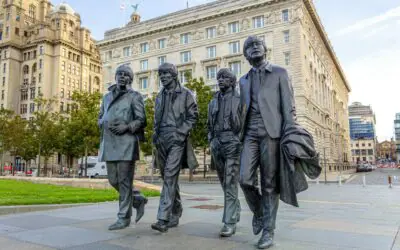
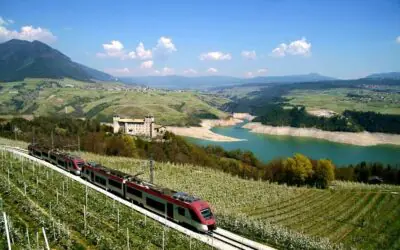
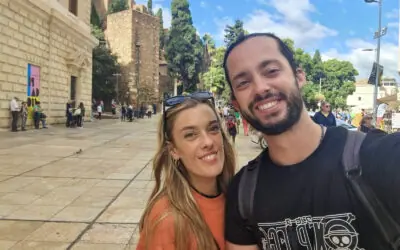
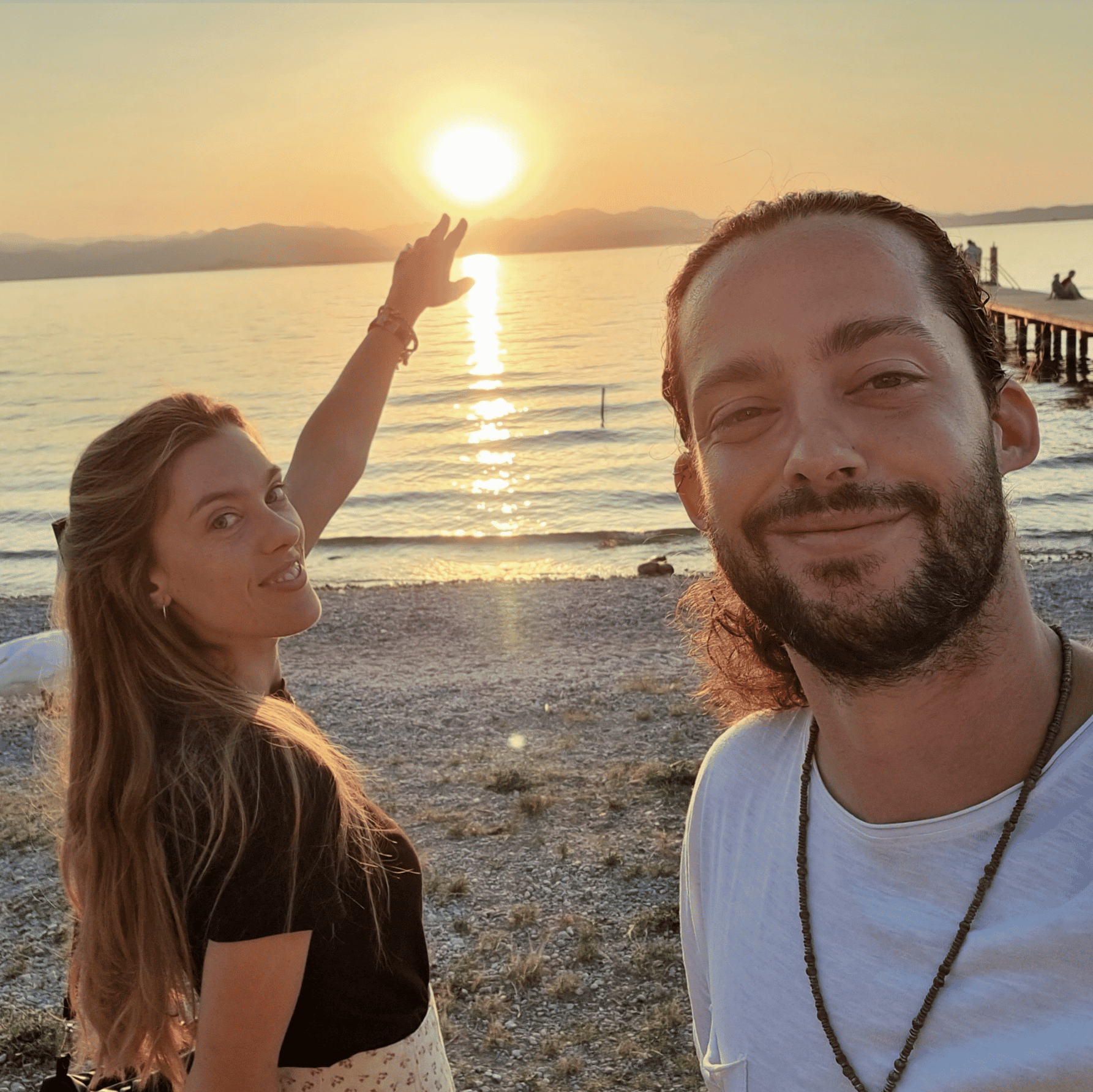




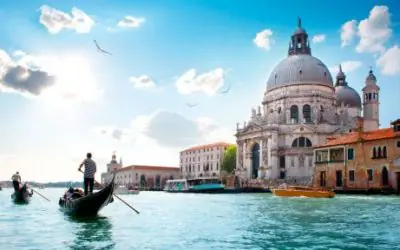


0 Comments